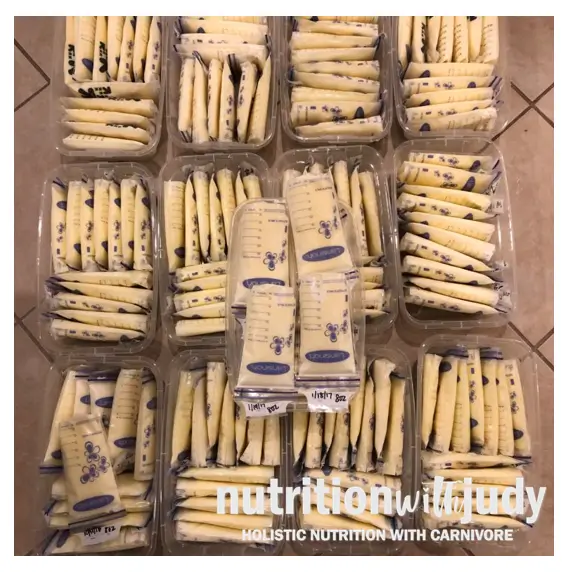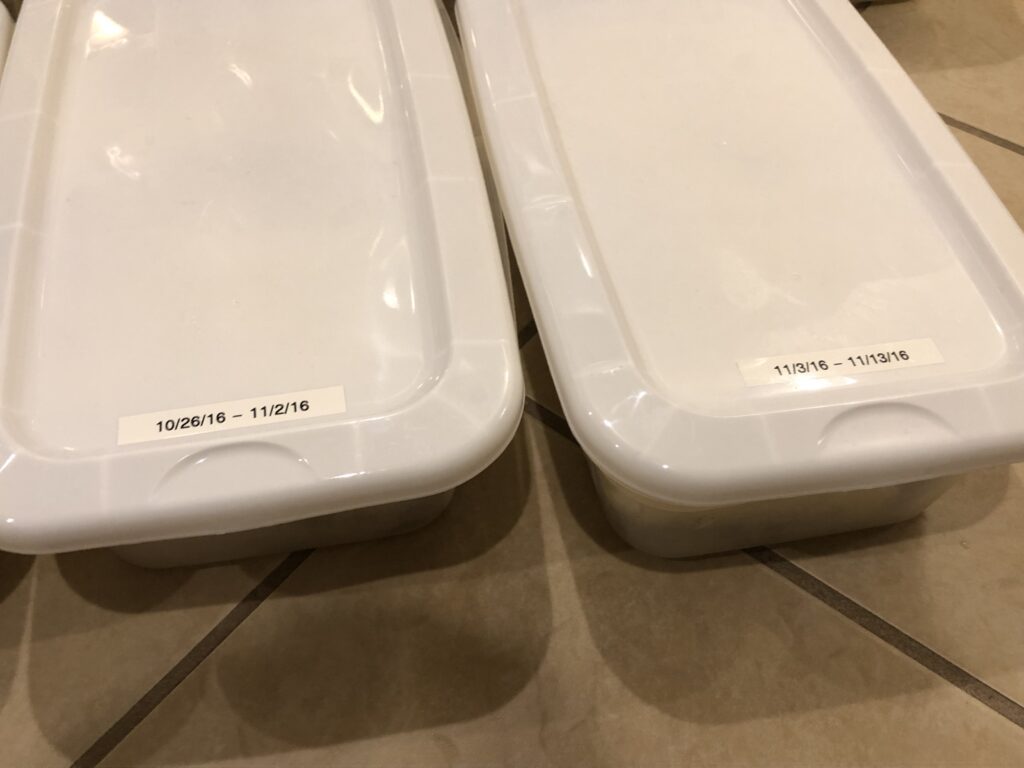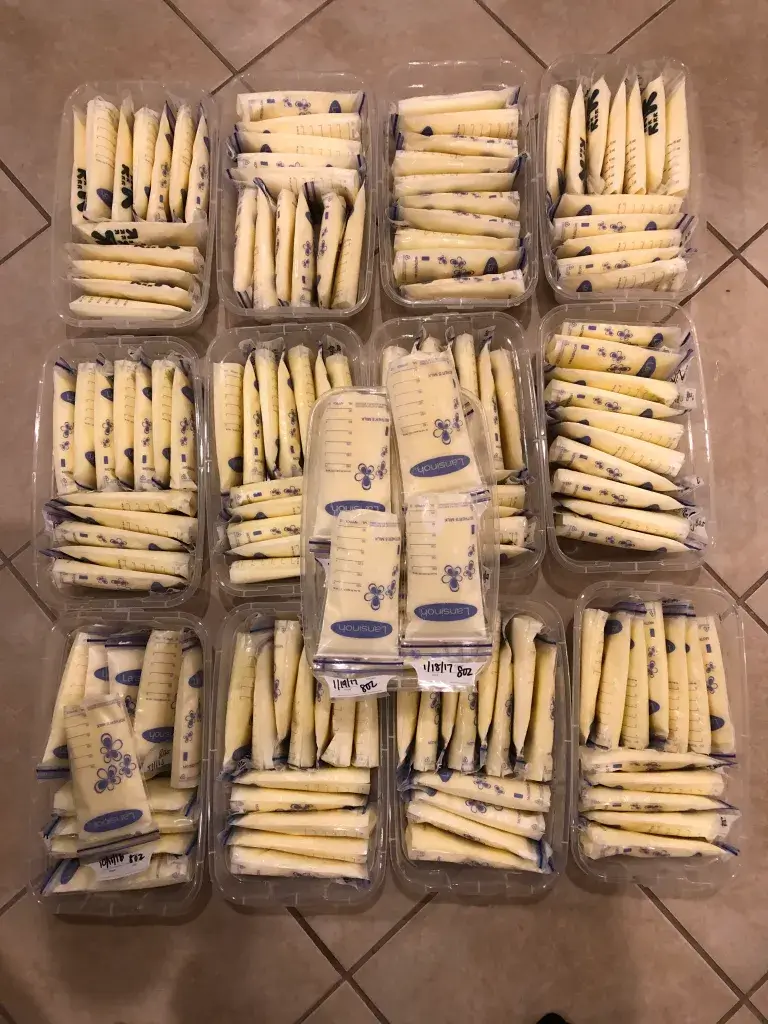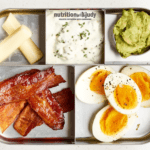

Why Breast Is Best: The Importance of Breastfeeding


Before I get into this topic, I want to mention that not every mom gets the luxury of breastfeeding. Whether it’s because of physical, personal or financial reasons, sometimes breastfeeding isn’t possible. We have to work with what we can and no one should feel “mom-guilt” or “parent-guilt” for not having breastfed their child. You have 18 years of properly prepared nutrient-dense foods to make up for it (that’s almost 20,000 meals). At the end of this post, I provide better baby formula solutions.
My son Aiden just turned 3 and he is still breastfeeding. I know most days I joke that it’s hard work and I can’t wait to get him to wean. In fact, there has never been a day in his life that I have not nursed him to bed at night. Yes, not one day off for over 1,100 days. There are days that I hope my milk will dry up. I recently did a 7-day extended salt + water fast and I nursed through the entire fast. Our bodies are incredible. I DO NOT advocate fasting for the first year of nursing. I was fully comfortable if my milk dried up as he was almost 3.
But just between us, I enjoy nursing. Yes, some days are hard. But most days, I get to have one extra day of this incredible experience with my son. I can feel the strengthening of our relationship and the relaxing oxytocins being released. My body has literally nursed him to thrive and it’s an incredible bonding experience. My son and our boppy have 1,100 days of memories that no one will ever understand.
My oldest son’s nursing experience was cut short at 6 months. I suffered from post-partum depression and the medication I took no longer allowed for nursing. (Side note: any medication that isn’t safe for babies should be questioned for any human consumption)
I was determined to nurse my second—sort of a do-over. After month 1, I fervently pumped one extra 8 oz portion of breast milk to freeze. I’d pump for 40 minutes which frankly was a lot of painstaking diligence and persistence, but it was worth it. It was for the “just in case” I fell sick again.




Over the first year, I was able to save 21 containers of 12 bags containing 6-8oz each. It added up to about 1500 ounces or 12 gallons of breastmilk. It was too late to donate and after 2.5 years, I ended up throwing most of it away. It was very bittersweet (“I should have given the milk to my oldest.”) but I am thankful Aiden never had to rely on this milk.
I do notice health differences in my kids. Obviously, it can be a number of factors but I believe that Aiden, never having been on sugar-laden formulas and having eaten low-carb very early on, has allowed him to have a stronger gut health.
Here are some known and some not so known benefits of breastmilk.
Note: A special thank you to the Kelly mom website for the exhaustive list of breastfeeding resources.
Breastfeeding has so many benefits that the World Health Organization recommends breastfeeding “up to two years of age or beyond.”
Health
I always knew the benefits of breast milk providing antibodies for the baby and now I know the science! “When a baby suckles at its mother’s breast, a vacuum is created. Within that vacuum, the infant’s saliva is sucked back into the mother’s nipple, where receptors in her mammary gland read its signals.” This “baby spit backwash,” contains information about the baby’s immune status. Everything scientists know about physiology indicates that baby spit backwash is one of the ways that breast milk adjusts its immunological composition.
If the mammary gland receptors detect the presence of pathogens, they compel the mother’s body to produce antibodies to fight it, and those antibodies travel through breast milk back into the baby’s body, where they target the infection.” (Source)
Wow.
- “Human milk in the second year postpartum contained significantly higher concentrations of lactoferrin, lysozyme and Immunoglobulin A, than milk bank samples” collected from donors less than 12 months postpartum. (Perrin 2016)
- Breastfeeding toddlers between the ages of one and three have been found to have fewer illnesses, illnesses of shorter duration, and lower mortality rates (Mølbak 1994, van den Bogaard 1991, Gulick 1986).
- “Antibodies are abundant in human milk throughout lactation” (Nutrition During Lactation 1991; p. 134). In fact, some of the immune factors in breastmilk increase in concentration during the second year and also during the weaning process. (Lawrence & Lawrence 2011, Goldman 1983, Goldman & Goldblum 1983, Institute of Medicine 1991)
Nutrition
- “Human milk in the second year postpartum contained significantly higher concentrations of total protein, lactoferrin, lysozyme and Immunoglobulin A, than milk bank samples, and significantly lower concentrations of zinc, calcium, iron and oligosaccharides.” (Perrin 2016)
- In the second year (12-23 months), 448 mL of breastmilk provides (Dewey 2001):
- 29% of energy requirements
- 43% of protein requirements
- 36% of calcium requirements
- 75% of vitamin A requirements
- 76% of folate requirements
- 94% of vitamin B12 requirements
- 60% of vitamin C requirements
- Studies done in rural Bangladesh have shown that breastmilk continues to be an important source of vitamin A in the second and third year of life. (Persson 1998)
Cognitive Development
- Breastfeeding has been shown to have a positive relationship on making kids brighter and supporting cognitive development.
- Extensive research on the relationship between cognitive achievement (IQ scores, grades in school) and breastfeeding has shown the greatest gains for those children breastfed the longest.
Social and Mental Health
- A shorter duration of breastfeeding may be a predictor of adverse mental health outcomes throughout the developmental trajectory of childhood and early adolescence.” (Oddy, 2010)
- [With extended breastfeeding] meeting a child’s dependency needs is the key to helping that child achieve independence. And children outgrow these needs according to their own unique timetable.” Children who achieve independence at their own pace are more secure in that independence then children forced into independence prematurely. (Elizabeth N. Baldwin, Esq. in “Extended Breastfeeding and the Law”)
Illness and Disease Prevention (Baby and Mother)
Breastmilk is touted for having important antibodies. These antibodies help the baby fight off bacteria and other viruses. This especially holds true with colostrum which has high amounts of IgA. When the mother is exposed to a virus, she starts producing antibodies and these antibodies are then passed along to the baby while nursing. If the baby catches the virus first, once the baby breastfeeds, it can pass the virus to the mother and in turn, the mother produces the antibody antidote.
As breastmilk has natural antibodies, whenever my son has an open wound or infection, I slather some fresh breastmilk hoping the antibodies will support the healing process.
Oh, the wonders of the human body!
- Breastfeeding protects against ear infections. 3 or more months of breastfeeding can reduce the risk by 50%.
- In fact, a surgeon general wrote a study on how health risks increase when a baby is not breastfed.
- Breastfeeding may decrease risk of SIDS, lower cold and eat/throat infections by 63% (if exclusively breastfed for 6 months), reduction in gut infections,
- Breastfed babies may have a reduced risk of childhood eczema and asthma.
- Some of the studies discuss breastfeeding and less risk of obesity, cancer protection and obstructive sleep apnea.
- Breastfeeding helps the uterus contract. Breastfeeding stimulate the hormone oxytocin which helps the uterus contract. Studies show that mothers who breastfeed generally have less blood loss after delivery and faster healing of the uterus.
- Breastfeeding may reduce the risk of breast cancer, ovarian cancer and lowers risk of Type II Diabetes.
- Breastfeeding protects against osteoporosis. During lactation a mother may experience decreases of bone mineral by 1-2% but the bone mineral density may increase above 1-2% once the baby is weaned.
Homemade Baby Formula
I’ve gone into detail about why store-bought formula isn’t ideal.
The best baby formula option is homemade baby formula. There are raw milk formula recipes, goat milk formulas, liver-based formulas, and other nutrient-dense baby food options. You can get all the details here. I highly recommend visiting the site as the Weston A. Price Foundation (founder of nutrition!) is always a wealth of information.
Final Thoughts
Most women in the US stop breastfeeding before the 6-month mark. If you are physically able to breastfeed for longer, I recommend doing so as it can set your child up for success. A happy, healthy child makes a parent’s life that much easier.
If our bodies can produce breastmilk even when the child is 7, maybe breastfeeding and extended breastfeeding is something we should all partake in.
That all said, as I’ve personally been affected by post-partum depression, I do believe that a child needs a happy, well-adjusted mother. If breastfeeding is causing you severe stress, anxiety and even resentment, you may want to find alternative options. Solid mental health of the mother trumps any amounts of breastfeeding. If anything, you have 20,000 meals to make up for it.



Tom De Nardis
August 15, 2019 at 3:49 amYour articles should be spread as far and wide as humanely possible!
Christy
July 26, 2020 at 9:27 amThis is awesome information! I tend to go to kellymom for any questions, but it’s nice to have the input of a nutritionist I trust as well (you). Thanks for the content!
Nutrition with Judy
September 4, 2020 at 1:22 amThank you! Kelly mom is great! I am still breastfeeding my now 4 year old and when I first started my mommy adventures, I leaned on Kellymom. I plan to share a list of nutrient-dense foods for baby’s first foods! Need to get it out soon!!
Clarissa
January 19, 2021 at 2:33 pmWhat a lovely idea! I can’t wait to read your list for baby’s first foods. Not a mommy yet, but hoping to learn as much as I can in order to prioritise my children’s health one day. Working on my own health at present!
Nutrition with Judy
January 24, 2021 at 3:49 pmHi Clarissa! The bonus is part of Carnivore Cure supplemental links!